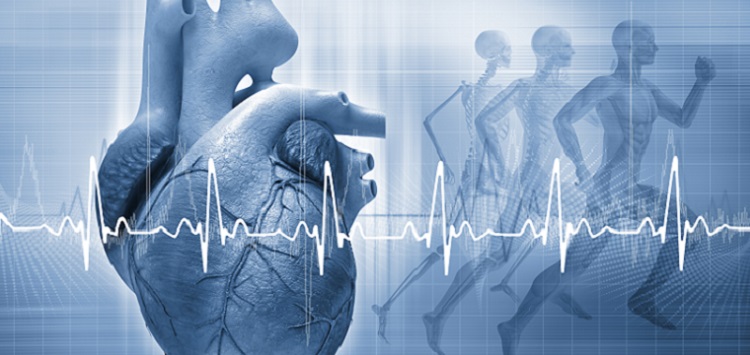How Dr Garcia helps patients protect heart health
How Dr Garcia helps patients protect heart health
Blog Article
Comprehending the Relevance of Cardiology in Modern Medical Care Solutions
Cardiology plays a vital function in modern-day health care, specifically as heart problem remains to be the leading cause of death worldwide. Advances in diagnostics and treatment have actually transformed patient care, making it possible for earlier interventions and improved end results. The shift towards precautionary cardiology empowers people to manage their health proactively. As modern technology remains to develop, the combination of cutting-edge options might further redefine cardiology's effect on public wellness, prompting a more detailed exam of emerging fads and their effects.
The Prevalence of Heart Problem and Its Impact on Public Wellness
Although cardiovascular disease remains the leading cause of death worldwide, its impact extends much beyond private people to impact public wellness systems and economic situations. The high prevalence of cardiovascular disease places a considerable pressure on health care resources, necessitating raised financing for therapy, prevention, and rehabilitation programs. Public wellness initiatives should address danger aspects such as obesity, cigarette smoking, and inactive way of livings, which contribute substantially to the rising occurrence of heart conditions.Moreover, the economic problem associated with cardiovascular disease is tremendous, encompassing not only direct clinical prices however likewise indirect expenses connected to lost performance and early mortality. Areas deal with difficulties in handling these costs, frequently resulting in variations in health care gain access to and end results. As the populace ages and lifestyle-related risks remain to escalate, the necessity for effective cardiology interventions becomes vital. Attending to heart condition is not just an issue of specific health but additionally an important public wellness priority.
Advances in Cardiac Diagnostics and Imaging Techniques
Recent improvements in cardiac diagnostics and imaging techniques have changed the area of cardiology, boosting the capacity to keep track of and identify heart illness. Strategies such as heart MRI, CT angiography, and echocardiography have actually come to be progressively sophisticated, providing comprehensive pictures of cardiac structures and functions. These modalities enable the very early recognition of conditions like coronary artery condition, heart failing, and valvular disorders.Moreover, developments in non-invasive diagnostics, such as wearable innovation and remote monitoring tools, have encouraged clients and healthcare carriers. These devices facilitate real-time tracking of heart rhythms and other crucial signs, resulting in prompt interventions. In addition, fabricated intelligence is being incorporated into imaging evaluation, improving precision and effectiveness in medical diagnosis.
Technologies in Therapy Choices for Heart Conditions
Current advancements in cardiology have led to substantial innovations in treatment choices for heart conditions. These include innovative surgical techniques that boost procedural outcomes and emerging medications that supply brand-new methods for therapy. As the area advances, these innovations play a vital duty in enhancing person care and outcomes.
Advanced Surgical Techniques
Developments in medical techniques have actually changed the landscape of cardiology, offering new wish for clients with heart disease. Minimally invasive treatments, such as catheter-based interventions, have substantially lowered recuperation times and medical facility stays. Methods like robotic-assisted surgical procedure boost precision, permitting cosmetic surgeons to navigate complex physiological structures with greater precision. In addition, innovations in imaging modern technology assist in real-time visualization during procedures, boosting outcomes. Transcatheter aortic shutoff substitute (TAVR) exhibits an advancement in dealing with aortic constriction, enabling shutoff replacement without open-heart surgical treatment. Additionally, hybrid methods that combine catheter-based and surgical techniques offer customized options for various cardiac issues. These advanced medical methods not just improve person security however also expand therapy alternatives, underscoring the important role of development in contemporary cardiology practices.
Emerging Therapies and drugs
As the landscape of cardiology remains to advance, arising therapies and drugs play a critical role in improving therapy choices for heart problems. Advancements such as novel anticoagulants and progressed lipid-lowering representatives have actually changed the management of cardio diseases, greatly decreasing client morbidity and mortality. In addition, the growth of gene therapies and regenerative medication provides appealing opportunities for dealing with conditions formerly regarded permanent. Clinical trials are consistently revealing the efficiency of these therapies, pushing the limits of traditional treatments. The assimilation of digital health technologies assists in tailored medication, permitting for customized therapy plans based on hereditary and way of life aspects. Collectively, these developments emphasize the dynamic nature of cardiology, boosting person results and redefining requirements of treatment in modern-day healthcare.
The Role of Preventive Cardiology in Person Treatment
Preventative cardiology plays a necessary duty in patient treatment by concentrating on the recognition of danger aspects that add to heart disease. Via way of living adjustment methods and very early detection strategies, healthcare companies can successfully decrease the occurrence of cardiovascular occasions - Cardiology Jupiter. This positive method not only boosts individual results yet likewise promotes long-term wellness
Risk Element Recognition
While cardio diseases continue to be a leading source of morbidity and death worldwide, efficient risk aspect identification offers as a keystone of preventative cardiology. Determining threat elements such as high blood pressure, hyperlipidemia, diabetes mellitus, and household history is necessary for early treatment. Health care experts make use of different screening approaches to evaluate these factors, permitting customized precautionary procedures. In addition, comprehending a client's way of life selections, such as smoking and physical lack of exercise, further educates threat evaluations. This complete assessment enables medical professionals to establish individualized treatment strategies focused on mitigating threats. By focusing on risk element recognition, health care systems can boost patient outcomes and reduce the general worry of heart diseases, ultimately contributing to enhanced public health approaches and source allocation.
Way Of Life Modification Strategies
A wide range of studies highlights the essential function of way of living adjustment strategies in minimizing heart disease danger. These strategies encompass nutritional changes, boosted physical task, cigarette smoking cessation, and weight administration. By taking on a heart-healthy diet plan abundant in fruits, vegetables, entire grains, and lean proteins, people can reduce cholesterol levels and blood stress. Routine exercise strengthens the heart and enhances overall cardiovascular wellness. In addition, stopping smoking cigarettes greatly reduces the threat of heart disease and improves recovery rates for those with current problems. Weight monitoring further contributes to cardio wellness by alleviating various other threat elements such as diabetic issues and high blood pressure. Applying these lifestyle transforms not just advertises specific wellness but likewise offers as a cornerstone of preventative cardiology in client care.
Early Detection Methods
Lifestyle modifications considerably add to decreasing heart disease risks, however they are most reliable when coupled with early detection strategies. Preventative cardiology emphasizes the significance of recognizing possible heart issues prior to they intensify right into severe problems. Strategies such as high blood pressure surveillance, cholesterol screening, and progressed imaging innovations like echocardiograms play essential roles in reviewing cardiovascular health. Biomarkers and genetic screening additionally boost the precision of very early detection, permitting customized preventive techniques. Regular heart threat examinations encourage doctor to step in proactively, potentially stopping cardiac arrest and strokes (Cardiology). By incorporating these very early detection approaches into regular treatment, patients can take advantage of timely way of living interventions and targeted therapies, inevitably improving and enhancing outcomes high quality of life
Integrating Technology Into Cardiology Practices
As advancements in modern technology continue to improve various areas, the combination of ingenious devices and systems right into cardiology techniques has actually become crucial for enhancing patient care and end results. Telemedicine systems allow cardiologists to check clients from another location, boosting access to care while minimizing the problem on medical care centers. Wearable devices, such as smartwatches, make it possible for constant heart rate surveillance, signaling both people and physicians to potential concerns in real-time. In addition, expert system (AI) is being made use of to assess vast quantities of cardiac information, helping in very early medical diagnosis and personalized therapy plans. Advanced imaging methods, consisting of 3D echocardiography, boost visualization of heart frameworks, bring about more precise treatments. Digital wellness records (EHRs) streamline client information management, making certain that cardiologists have instant accessibility to critical data. Together, these technological innovations are transforming cardiology, advertising aggressive management and enhanced health end use this link results for patients with cardiovascular problems.
The Value of Client Education And Learning and Engagement
Patient education and interaction play a pivotal function in the management of cardio health. By gearing up clients with knowledge concerning their problems, treatment alternatives, and way of living modifications, medical care suppliers empower people to take an active duty in their treatment. This proactive method can result in enhanced adherence to recommended drugs, nutritional modifications, and workout programs, ultimately reducing the danger of complications.Engagement likewise cultivates a solid patient-provider partnership, motivating open interaction and depend on. When individuals feel informed and involved, they are most likely to voice problems and ask inquiries, which can result in far our website better scientific end results. Additionally, instructional resources, such as workshops or digital systems, can improve understanding and promote self-management approaches. In general, focusing on patient education and learning and engagement is necessary for boosting cardio health and wellness, boosting lifestyle, and minimizing healthcare prices connected with heart diseases.
Future Fads in Cardiology and Their Prospective Influence

Frequently Asked Questions
What Way Of Life Adjustments Can Lower Cardiovascular Disease Threat?
The present inquiry addresses way of life adjustments that can significantly lower heart condition threat. Cardiology care. Taking on a well balanced diet, engaging in normal physical task, maintaining a healthy and balanced weight, taking care of stress and anxiety, and staying clear of cigarette can especially boost cardio wellness
Just How Can I Recognize Early Indications of Heart Troubles?
Acknowledging very early indications of heart problems entails surveillance signs and symptoms such as breast pain, lack of breath, fatigue, and uneven heartbeat. Prompt understanding of these indicators can prompt needed clinical evaluation and treatment for much better end results.
What Are the Distinctions In Between Cardiologists and Cardiac Surgeons?
The differences between cardiologists and heart surgeons hinge on their duties; this contact form cardiologists mostly manage and identify heart disease through non-invasive methods, while heart cosmetic surgeons do surgical procedures to deal with architectural heart concerns. Each plays an essential, unique role.

Exactly how Commonly Should I Obtain My Heart Wellness Checked?
The regularity of heart checkup differs based upon private risk elements. Normally, grownups need to undergo evaluations each to 2 years, while those with existing conditions may call for more frequent assessments as suggested by medical care experts.
What Role Does Genetics Play in Heart Problem Threat?
Genes considerably influences heart problem threat, with domestic patterns indicating inherited problems. Specific genetics can incline people to hypertension, cholesterol problems, and other cardiovascular troubles, highlighting the value of hereditary testing in examining heart health and wellness. Heart disease remains the leading reason of death globally, its effect extends far beyond specific clients to influence public wellness systems and economies. Public health and wellness campaigns need to address danger factors such as obesity, smoking, and sedentary way of livings, which add greatly to the climbing occurrence of heart conditions.Moreover, the financial worry connected with heart condition is immense, incorporating not just direct clinical expenses but additionally indirect expenses associated to lost performance and early death. Preventive cardiology plays an essential duty in client care by focusing on the recognition of danger variables that contribute to heart illness. Artificial knowledge (AI) and device discovering are boosting diagnostics and person surveillance, allowing very early detection of heart conditions. The differences in between cardiologists and heart cosmetic surgeons lie in their duties; cardiologists largely identify and handle heart conditions with non-invasive methods, while cardiac doctors perform surgical treatments to correct structural heart concerns.
Report this page